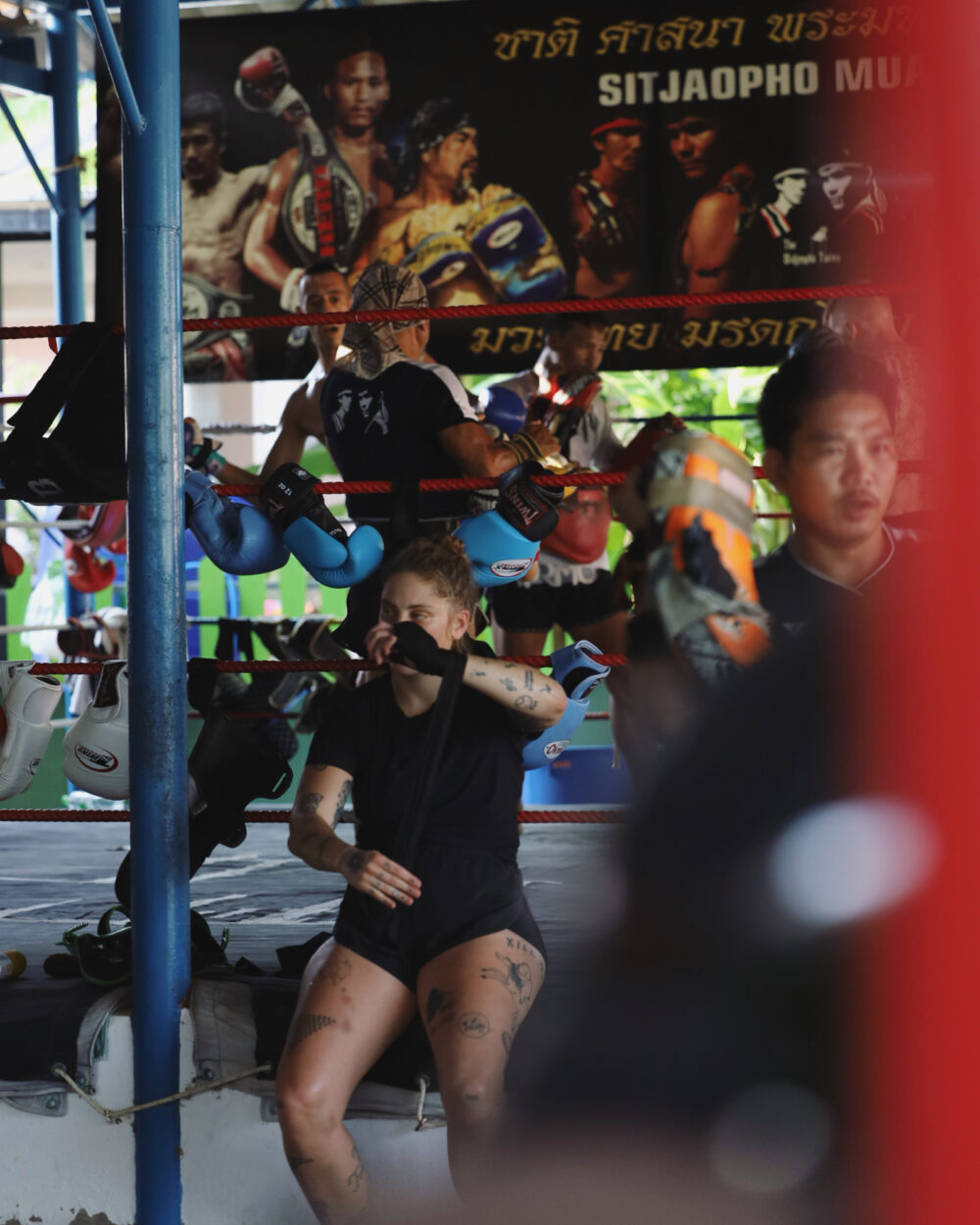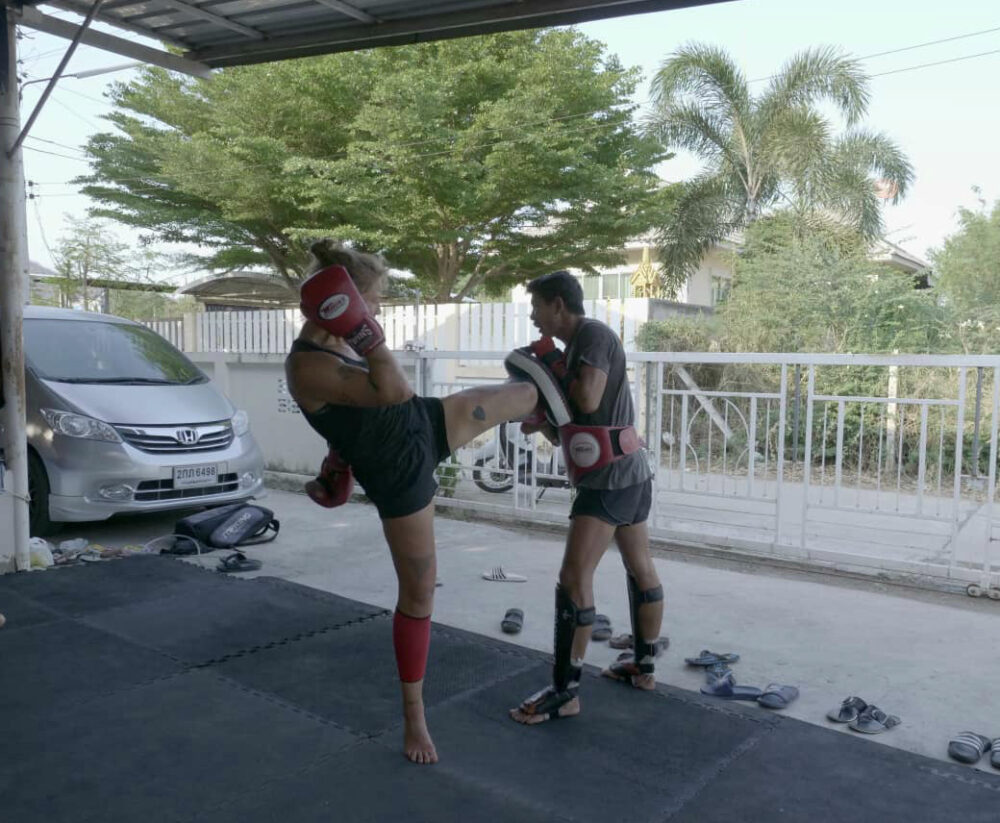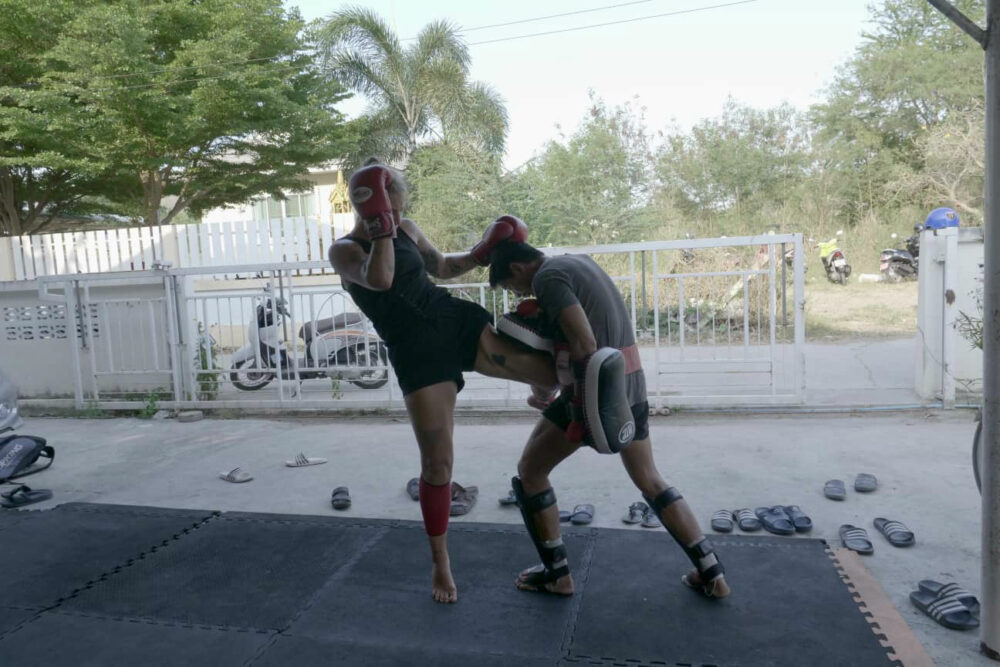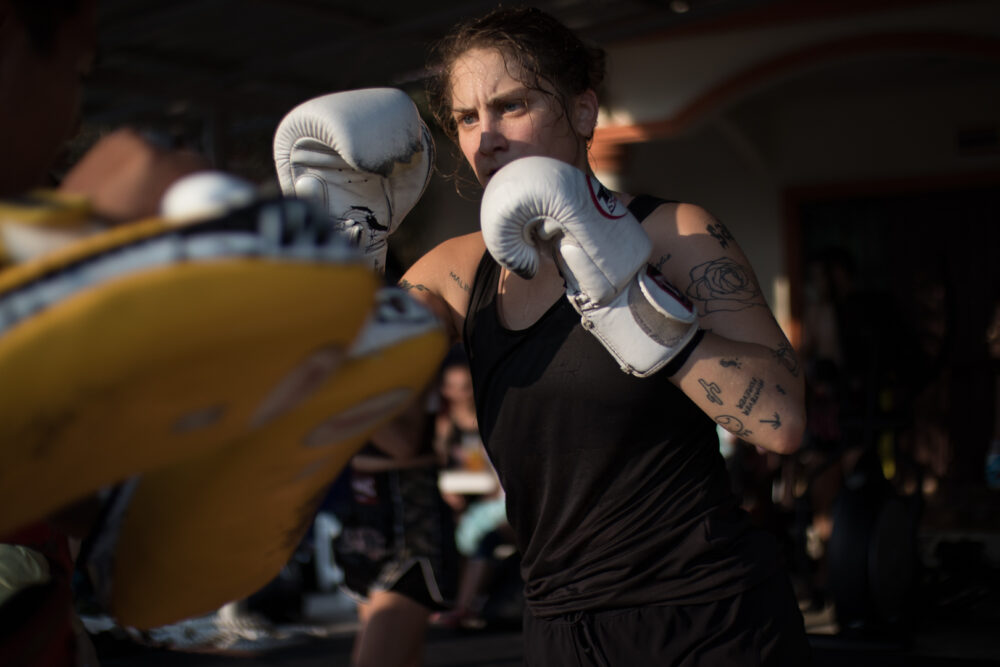On training in Thailand
I am in no way a professional fighter, I have trained regularly for many years and have had a couple of fights. Over the years I have been in Thailand many times, training (a lot) and fighting a little. Being back in Thailand and being back and training makes me realise just how hard it is. Somehow, I tend to forget it every time, thinking I am in okay shape, thinking I am good to go and dive straight into it. But here I am, two weeks in, drained and dead. Not that I complain though.
I get a lot of questions about the experience and I thought I’d share my view. First things first: Training in Thailand is not like training at home. The training is different, the weather is different, the food is different, and even the teaching methods are different. Muay Thai (or thai boxing) is Thailand’s national sport, and there are hundreds of training camps around the country. Some targeted towards foreigners (farang) and even more ancient gyms with thai fighters of all ages and experiences. When deciding to train in Thailand, you should prepare yourself for one of the most exhausting, and painful, yet rewarding, enjoyable, and memorable experience you’ll ever have. The most important reason is that it’s an amazing opportunity to accelerate and improve your technical and tactical skill development – iff you find the right gym and trainer. Planning ahead will get you a long way.

The training
A normal day of training will consist of a morning or afternoon run, two sessions that last between two-three hours each, and fighters will commonly train six days a week. The morning sessions are usually a little lighter than the afternoons, with shadow boxing, bag work, lighter padwork and conditioning. The “classes” (in lack of better words) are quite informal and not structured for a whole group to carry out the same drills and activities. If you are looking for a fixed schedule, you are in the wrong place. But training at a muya thai gym, you will be be expected to run with the group before training and spend a certain number of rounds of skipping, shadow boxing, pad work, bag work, and sometimes clinch and sparring (depending on your level of experience).
A typical morning session, starting around 07.00 could be:
- Running 8-10 k
- Shadow boxing, 3-5 rounds
- Bag work: kicks, knees and teeps
- Light pad work (technical drills)
- Light sparring
- Conditioning (situps and pushups)
The afternoons are harder. Not only because you are tired from the morning and because the heat has gone up. It’s more focused on hard pad work and harder sparring, with trainers and with your partners.
A typical afternoon, starting around 15.00 could be:
- Running 5 k
- Jump rope, 20-30 min
- Hard pad work, 3-5 rounds
- Sparring
- Clinching
- Bag work: kicks, knees and teeps
- Conditioning (200 situps, 100 pushups, pullups)
With this said (if you are not in fight camp); it is up to you how hard you go and how much effort you put in to it. You don’t have to commit to the thai fighters’ training schedule. But if you don’t – don’t expect to get the trainers attention. The longer you stay at a gym with your trainers, the more effort and attention they will invest in you – and the better progress you’ll make. If you keep changing gyms, you begin this trust building process again.


Before you go
- Build up your cardio. Trust me on this one, you don’t want to come to Thailand and struggle with your breath. The training is hard enough as it is, and you’d want to be in good enough shape to do pad work and spar – not run. It really is all about increasing your training volume (number of sessions, duration of sessions) ahead of time so that your body can better cope with the changes.
- Set the right expectations. With a high volume of training that most aren’t used to, you can expect your body to be very sore and tight. Your relative improvement will depend on the quality your trainer(s) and how many productive training sessions you can amass during your stay.
- Find the right gym. When determining what camp you want to train at, firstly, you should consider the type of experience you’d like to have and your current level of experience. Ask yourself what it is you’d like to get out of your training. Are you looking to sharpen specific techniques, prepare for a fight or simply finding a community? To simplify, there are two types of camps: the more authentic gyms or the more commercial ones those are geared towards foreigners (farang). All gyms have different profiles – do your research. Here is one website that lists many gyms in Thailand based on region: https://muaythaicampsthailand.com
- Logistics matter. Most gyms are not situated in the middle of the city where there is lots to do and see. Depending on your budget, experience level, and where you’re based, there will be a training camp tailored to your needs. Usually you will pay for your training on a daily, weekly or monthly basis. To get the most of your time, it’s not only the gym you choose that matters. Think about the whole experience and what you want out of your stay.
- Covid restrictions. A boring but important note – make sure to have everything covered before you book your trip and triple check all documentation. You do no want to enter Thailand only to be put in a covid hospital. Reach out to your local embassy if you are uncertain.
When you are there
- Don’t go out too hard. If you want to make it to every class I would suggest to do what I did; I would have easy days and hard days. Easy days I would do everything light (light cardio, less rounds of padwork, no sparring) and the hard days I would push it more (hard rounds on the pads, sparring, weights etc.). Start steady and accelerate. You will most likely get more out of your last week than your first. Don’t lose that exponential growth.
- Get your rest. Between the training sessions, try to properly rest your body. You may be very excited/restless and want to do “SOMETHING” before training again, but if training is your focus, save everything else for the weekend. Rest is the only way your body recovers and repairs itself. Don’t be afraid to take some sessions of the week out to recover, and get a thai massage every once in a while.
- Show respect (!). There are some unwritten rules around gym hierarchy in Thailand which are very important understand and to learn. These are based on the overall thai culture and values that we, as foreigners, are not necessarily aware of or accustomed to. Not learning this is disrespectful. Here is a great article on this topic: https://muay-ying.com/gym-etiquette-in-thailand/.
- Listen to your trainers. It’s important to understand that there are many ways to execute the same techniques – depending on the trainers personal preference and style. Be prepared to try different ways, and keep what personally suits you best. But always listen and follow their instructions.
- Drink enough water. Simple but important – fill up with electrolytes in the beginning as you will sweat a LOT.

To conclude
Muay thai is not only a sport but an important part of thai culture. So be sure to use the opportunity to check out the beauty of Thailand and mix a little bit of history. Plan your time and training well, listen to your trainers and learn everyday. Some days will be hard but it’s part of the process. Don’t complain. Rest if you need to. For every time you come back, you will continue to experience and learn more.